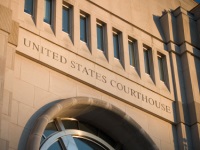One of the most significant challenges facing plaintiffs in pleading a violation of Section 10(b) of the Securities Exchange Act of 1934 is sufficiently alleging that the defendant company possessed scienter, or an “intent to deceive.” Because a corporation can only act through its employees, the challenge is to determine which employees’ alleged state of mind should be imputed to the company.
On October 10, 2014, the Sixth Circuit considered that question in In re Omnicare Sec. Litig., No. 13-5597, 2014 WL 5066826 (6th Cir. Oct. 10, 2014). Omnicare involved a Section 10(b) shareholder class action against Omnicare, Inc., a pharmaceutical manufacturer, alleging that Omnicare’s financial statements and other public disclosures contained misstatements regarding the company’s compliance with Medicare and Medicaid regulations. In particular, plaintiffs alleged that although Omnicare’s internal audit group discovered that certain company facilities had submitted false reimbursement claims, Omnicare failed to disclose the fraud and, in publicly-filed documents signed by the CEO and CFO, asserted that Omnicare’s “billing practices materially comply with applicable state and federal requirements.” READ MORE









